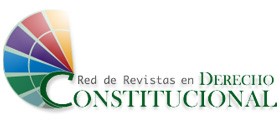El mandato y su revocación desde la relación jurídico-política entre electores y elegidos. (RI §421348)

Mandate and its recall from the legal-political relationship between electors and elected -
María Laura Eberhardt
Este artículo tiene por objeto desentrañar el significado y alcances de la revocatoria de mandato en tanto mecanismo de control ciudadano presente en numerosas constituciones latinoamericanas. Para ello se aborda la noción del mandato como relación jurídico-política entre electores y elegidos desde varias líneas argumentativas: el vínculo entre mandante (superior) y mandatario (inferior) y entre deber y sanción; la teoría del mandato vs. la teoría del órgano; la idea de representación libre (moderna) vs. la de mandato imperativo (medieval); y la noción de democracia representativa vs. la de democracia directa. Las conclusiones indican que la introducción de la revocatoria reemplazó la noción moderna de representación libre por un nuevo tipo de mandato imperativo o representativo “híbrido”, cercano a la democracia participativa, en el que el mandato es redactado por el mandatario.
I. INTRODUCCIÓN. II. REVOCATORIA DE MANDATO. DEFINICIÓN Y características. III. MANDATO Y REVOCATORIA / DEBER Y SANCIÓN: LAS DOS CARAS DE LA MISMA MONEDA. IV. LA RELACIÓN JURÍDICO-POLÍTICA ENTRE ELECTORES Y ELEGIDOS: TEORÍA DEL MANDATO Y TEORÍA DEL ÓRGANO. V. PROFUNDIZANDO EN LA TEORÍA DEL MANDATO: MANDATO IMPERATIVO Y MANDATO REPRESENTATIVO. VI. EL MANDATO REPRESENTATIVO: RESPONSIVENESS, ACCOUNTABILITY Y REMOVABILITY. VII. CONCLUSIONES.
The purpose of this article is to unravel the meaning and scope of the recall as a citizen control mechanism present in numerous Latin American constitutions. For this, the notion of the mandate as a juridical-political relation between electors and elected from several argumentative lines is approached: the bond between the principal (superior) and the mandatory (inferior) and between duty and sanction; the theory of the mandate vs. the theory of the organ; the idea of free representation (modern) vs. that of imperative mandate (medieval); and the notion of representative democracy vs. the one of direct democracy. The conclusions indicate that the introduction of the recall replaced the modern notion of free representation with a new type of imperative mandate or an "hybrid" representative mandate, close to participatory democracy, in which the mandate is drafted by the mandatory.

 CONSEJO EDITORIAL / EDITORIAL BOARD
CONSEJO EDITORIAL / EDITORIAL BOARD